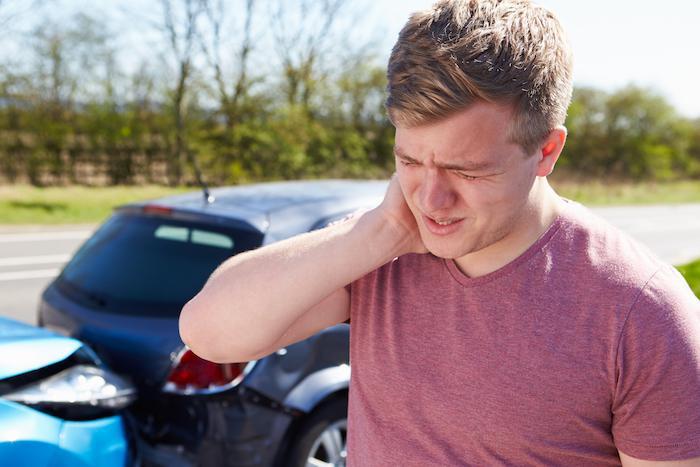Navigate Auto Accident Injuries with Expert Care Strategies

1. Prioritize Safety First
After an auto accident, safety is the top priority. Ensure everyone involved is safe and move to a secure location if possible. Contact emergency services immediately to report the accident and request medical assistance.
2. Seek Medical Attention Promptly
Even if injuries seem minor, it’s crucial to seek medical attention promptly. Some injuries may not exhibit immediate symptoms, and a medical professional can assess and address potential concerns. This initial assessment sets the foundation for a comprehensive care plan.
3. Document the Scene and Injuries
If circumstances allow, document the accident scene and any visible injuries. Take photos, gather witness information, and obtain a copy of the police report. These details can be valuable for insurance claims and legal proceedings.
Comprehensive Auto Accident Injury Care
1. Professional Medical Evaluation
After the initial assessment, schedule a thorough medical evaluation with a healthcare professional specializing in auto accident injuries. This may include a visit to an emergency room, urgent care facility, or a primary care physician. Diagnostic tests, such as X-rays or MRI scans, may be recommended.
2. Chiropractic Care for Soft Tissue Injuries
Chiropractic care plays a vital role in addressing soft tissue injuries commonly associated with auto accidents, such as whiplash. Chiropractors use adjustments and therapeutic techniques to alleviate pain, improve mobility, and support the body’s natural healing process.
3. Physical Therapy for Rehabilitation
For individuals with more severe injuries or those requiring long-term rehabilitation, physical therapy is a key component of auto accident injury care. Tailored exercises and therapeutic interventions help restore strength, flexibility, and functionality.
4. Pain Management Strategies
Effective pain management is essential during the recovery process. This may involve medications prescribed by a healthcare professional, as well as non-pharmacological approaches such as acupuncture, massage therapy, or topical treatments.
Holistic Approaches to Healing
1. Nutritional Support
Nutrition plays a crucial role in the healing process. A well-balanced diet rich in vitamins, minerals, and protein supports the body’s recovery and helps rebuild tissues damaged in the accident. Consult with a healthcare professional or nutritionist for personalized guidance.
2. Mind-Body Wellness Practices
The emotional impact of an auto accident should not be underestimated. Mind-body wellness practices, such as meditation, yoga, or counseling, can contribute to mental and emotional well-being during the recovery journey.
3. Restorative Sleep
Quality sleep is integral to the healing process. Establishing healthy sleep patterns and creating a conducive sleep environment promote optimal recovery. Addressing sleep-related issues early in the recovery phase can positively impact overall well-being.
1. Consultation with Legal Professionals
Navigating the legal aftermath of an auto accident is crucial for securing the necessary resources for comprehensive care. Consultation with legal professionals specializing in personal injury law can guide individuals through the complexities of insurance claims and potential legal actions.
2. Communicate with Insurance Providers
Open communication with insurance providers is essential. Report the accident promptly, provide necessary documentation, and cooperate with the claims process. Understanding coverage and potential benefits helps ensure access to the appropriate level of care.
Long-Term Recovery and Wellness
1. Gradual Return to Physical Activity
As recovery progresses, individuals may gradually reintroduce physical activity under the guidance of healthcare professionals. Physical therapists can design tailored exercise programs to rebuild strength and prevent long-term issues.
2. Follow-Up Medical Assessments
Regular follow-up medical assessments are crucial for monitoring progress and addressing any emerging concerns. These assessments guide adjustments to the care plan, ensuring that the recovery process remains on track.
3. Psychological Support for Trauma Recovery
For individuals grappling with the psychological impact of the accident, ongoing psychological support is beneficial. Therapists and counselors experienced in trauma recovery can provide valuable coping strategies and emotional support.
Home Modifications for Optimal Recovery
1. Adapting the Home Environment
Modifying the home environment to accommodate mobility challenges or special needs is crucial for optimal recovery. This may include installing ramps, grab bars, or adaptive equipment to facilitate independence and reduce the risk of accidents within the home.
2. Assistive Devices for Daily Living
Incorporating assistive devices into daily life can significantly improve the quality of life for individuals recovering from auto accident injuries. Devices such as walkers, canes, or adaptive utensils can enhance mobility and make daily activities more manageable.
Preventive Care and Long-Term Wellness
1. Regular Health Checkups
Even after significant recovery, individuals should prioritize regular health checkups to monitor any potential long-term effects of auto accident injuries. This proactive approach allows healthcare professionals to identify and address emerging issues promptly.
2. Holistic Wellness Practices
Incorporating holistic wellness practices into daily life contributes to long-term well-being. This may involve maintaining a balanced lifestyle with regular exercise, healthy nutrition, and stress management techniques. Holistic wellness practices support ongoing recovery and reduce the risk of future health challenges.
Conclusion: Your Journey to Recovery Begins Here
In conclusion, the journey to recovery after an auto accident demands a comprehensive and personalized approach to care. From the immediate steps taken at the accident scene to long-term strategies for physical and emotional well-being, each phase plays a crucial role in the healing process.
Whether addressing immediate injuries, embracing holistic wellness practices, or navigating legal and insurance considerations, individuals can take charge of their recovery by staying informed and seeking professional guidance. The collaborative efforts of healthcare professionals, legal experts, and individuals themselves pave the way for a more robust and complete recovery.
Remember, you are not alone on this journey. With the right support and a proactive approach to auto accident injury care, individuals can rebuild their lives, regain their health, and embark on a path toward lasting wellbeing.

